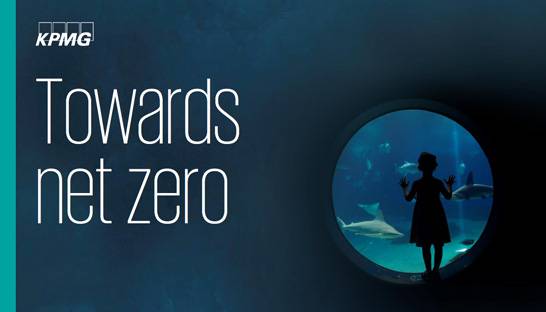According to a KPMG benchmark, Australia’s top 100 companies outperform some of the world’s biggest firms when it comes to sustainability-related financial reporting.
KPMG’s global study surveyed the G250 – the Fortune 500’s 250 largest companies by revenue – to assess the state of climate risk in financial reporting. The report set out 12 best practice criteria for assessing companies, covering the key areas of climate risk management, identification and impacts, as well as zero reporting.
Companies were also screened based on the recommendations of the Task Force on Climate-Related Financial Disclosures (TCFD), a 2015 Financial Stability Board market-driven initiative to improve sustainability reporting. KPMG describes the TCFD as “the gold standard for climate risk and decarbonisation reporting”.
Based on his sophisticated framework, the ASX100 – the top 100 companies on the Australian Stock Exchange – appears to outperform its global peers. In fact, 78% of the ASX100 now recognize climate change as a financial risk to business – significantly higher than the G250 average of 56%. Only France ranked better than Australia in this metric.
Then there is TCFD compliance. “Our research shows a substantial increase in the number of large Australian companies signing up to the TCFD framework,” noted KPMG Global Chair of Sustainability, Climate Change and ESG (environment, social and governance) services Adrian King – who is himself based in Australia.
Three years ago, only 16% of Australian companies followed the TCFD recommendation. Today it is almost 60%. According to King, “it’s very encouraging in the absence of public policy directives and driven by the business itself, investor demand and calls to action from regulators.”
The reporting of climate risks thus – voluntarily – became one of the main business priorities. In fact, the ASX100 is on par with, if not better than, their global peers in all areas of sustainability, TCFD disclosure and ESG reporting. That being said, there is still work to be done in terms of the rigor and quality of reporting in the country.
“The areas where they fall short are in reporting climate change impacts using scenario analysis and reporting science-based targets that show how they intend to move to net zero carbon emissions,” King explained. In fact, just over 40% of the ASX100 actually link their news to the Paris Climate Agreement’s goal of two-degree warming. With tightening regulations and a worsening climate crisis, a more scientific approach could prove critical.
Sustainable development goals
The good news is that Australian businesses are certainly signaling their intention to comply with global conventions. In addition to their remarkable adherence to the TCFD, this sentiment is particularly evidenced by their sharpening focus on the United Nations Sustainable Development Goals (UN SDGs).
In 2017, KPMG found that less than 30% of Australian businesses referenced the SDGs in their annual business activity report. A new survey of more than 5,000 companies in more than 50 countries late last year found that figure is now almost 70% in Australia. A major focus area in Australia is SDG 13 – Climate Action.
“2020 is often called the ‘Decade of Action’ for the SDGs, and those that businesses prioritize often symbolize what topics are at the forefront of societal discourse,” King noted. It is not surprising that climate change occupies a prime position given its urgency as a humanitarian as well as an economic issue.
“Business is at risk not only from the physical impacts of climate change, but also from the financial impacts of moving to a net zero economy,” King said.
A Deloitte report last year quantified this urgency, highlighting that inaction on climate change could cost the Australian economy more than $3 trillion by 2070, while taking the right steps could bring economic benefits of $700 billion.
Judging by their actions, Australian businesses seem to have taken stock of the situation. And it’s not just climate change that’s rising up their agenda. KPMG’s SDG analysis revealed that both SDG 8 (decent work and growth) and SDG 5 (gender equality) are mentioned in more than 60% of ASX100 annual reports.
In the next two to three years, KPMG also predicts an increase in biodiversity reporting in Australia, “30 percent of the ASX100 cite SDG 15 – Life on Land as relevant to their business, compared to just 9 percent internationally.”


